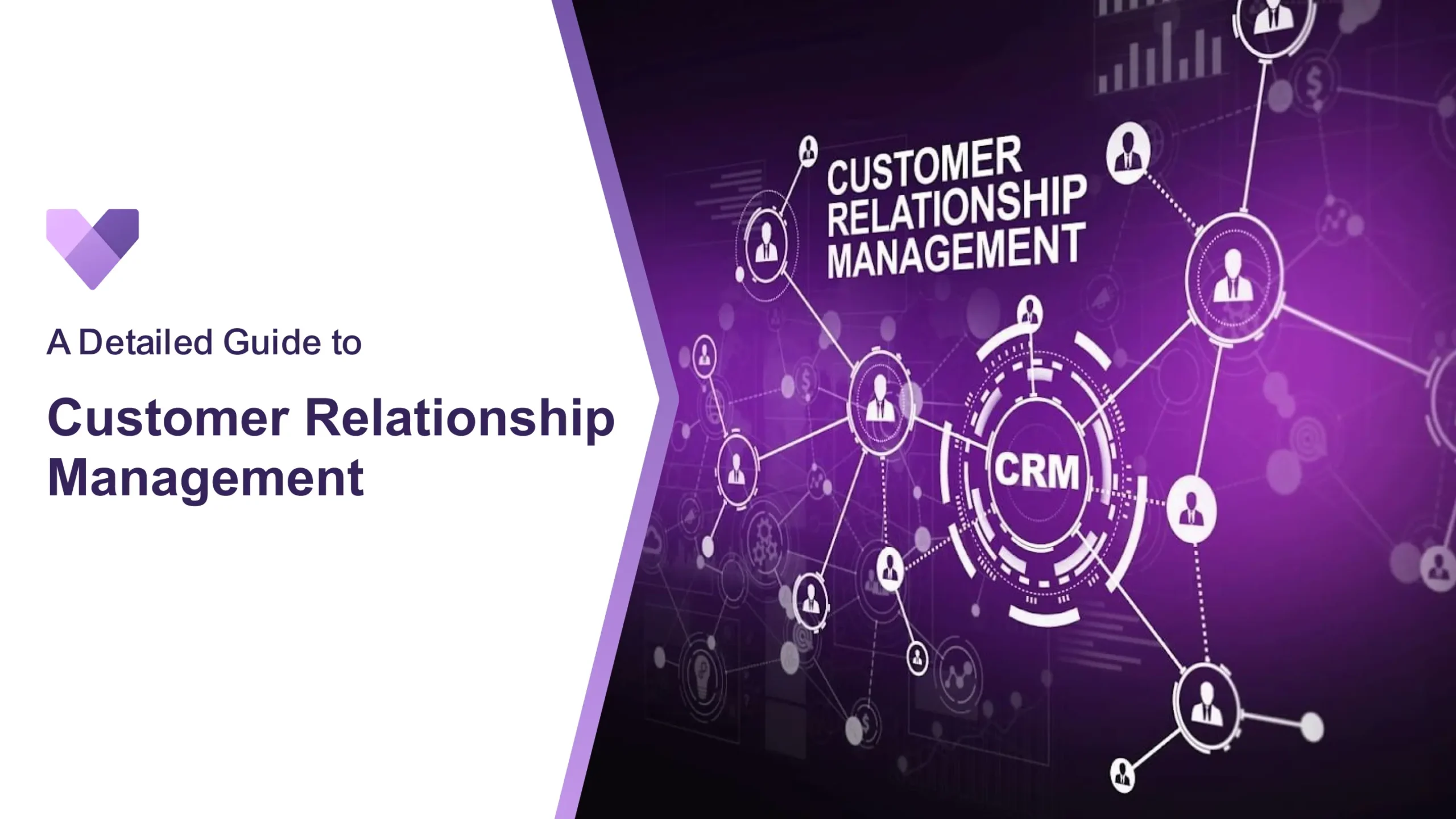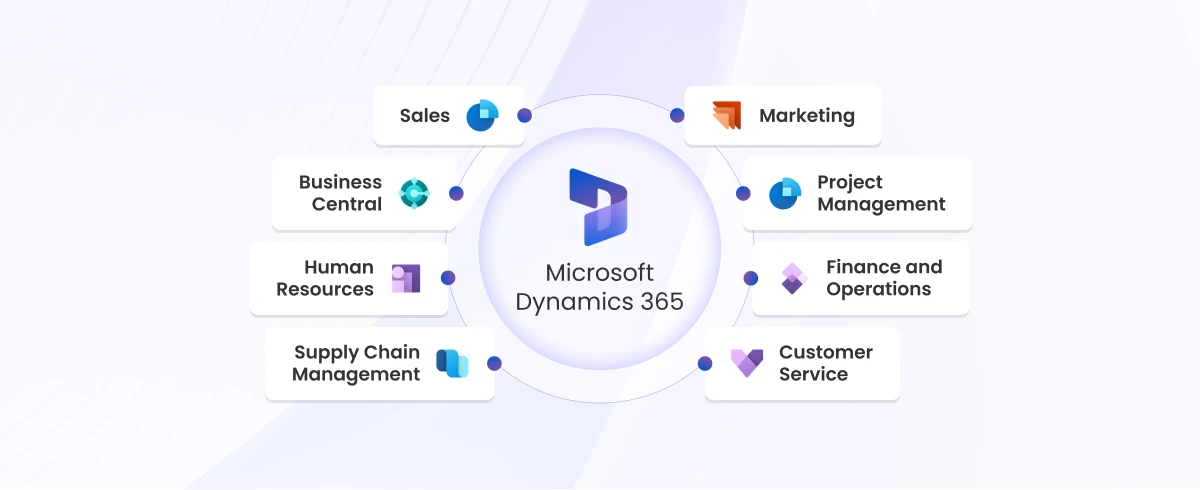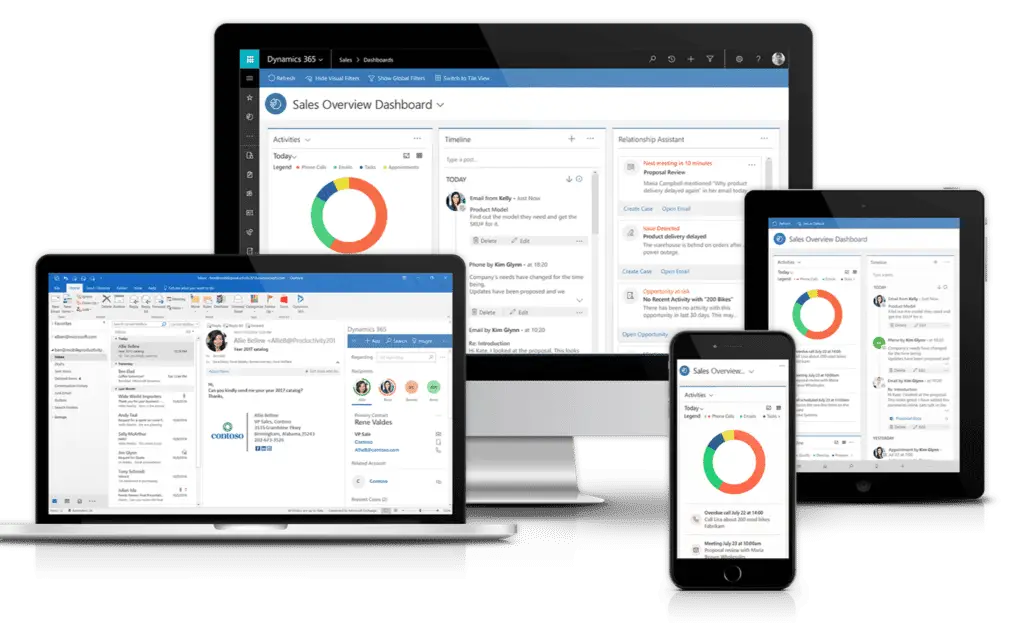What is CRM?
What is CRM (Customer Relationship Management)?

- Global Data 365
In an era where customer experience can make or break a business, the ability to manage and nurture customer relationships is more critical than ever. Customer Relationship Management (CRM) is the cornerstone of this effort, providing the tools and strategies businesses need to understand their customers, personalize interactions, and drive sustained growth.
From small startups to global enterprises, a well-implemented system can be the key to unlocking greater customer satisfaction, loyalty, and profitability. This guide will walk you through the essentials of CRM, highlighting its features, benefits, and strategies to ensure success.
What does CRM stand for?
CRM, or Customer Relationship Management, is a term frequently paired with words like “software,” “platform,” or “solution.” Yet, a basic definition of CRM doesn’t quite capture its true value.
What is CRM?
CRM technology enables businesses to cultivate and sustain meaningful customer relationships by streamlining how customer information is tracked and used. It acts as a central repository for all interactions across sales, support, and marketing, ensuring that everyone in the organization has access to a single, comprehensive view of the customer and clear visibility into their journey and the sales pipeline.
In today’s fast-paced environment, even the most efficient teams can find it challenging to manage the overwhelming amount of data generated throughout a customer’s lifecycle. A single lapse in this process can easily result in losing a customer’s loyalty.
This is where an integrated system becomes indispensable for customer-focused businesses. By collecting, organizing, and analyzing vital customer data—such as purchase history, behavior patterns, and individual preferences—your team can gain valuable insights into what drives your customers.
When communication is personalized, relevant, and perfectly timed, it leads to higher customer satisfaction. And satisfied customers are crucial to the success and growth of any business.
What are the features of a CRM?

The systems come with a wide range of features designed to help businesses manage their customer relationships more effectively. Here are some of the most common features:
- Contact Management: CRM systems allow businesses to store and manage customer information, including contact details, communication history, and customer preferences, in a centralized database.
- Sales Management: CRM software helps track leads, manage the sales pipeline, and automate sales tasks, such as follow-up emails and scheduling meetings.
- Customer Service Management: CRM systems often include tools for managing customer support, such as ticketing systems, knowledge bases, and automated responses.
- Marketing Automation: CRM software can automate marketing tasks, such as email campaigns, social media posts, and customer segmentation, ensuring that marketing efforts are targeted and efficient.
- Analytics and Reporting: CRM systems provide powerful analytics tools that enable businesses to track performance metrics, analyze customer behavior, and generate reports to inform decision-making.
- Workflow Automation: CRM software can automate routine tasks, such as data entry, task assignments, and reminders, freeing up time for more strategic activities.
- Integration with Other Tools: CRM systems can integrate with other business tools, such as email platforms, accounting software, and e-commerce systems, ensuring seamless operations across the organization.
Types of CRM Technology
Customer Relationship Management (CRM) technology comes in various forms, each offering distinct advantages depending on a company’s size, needs, and preferences. The four leading vendors—Microsoft, Oracle, Salesforce, and SAP—are renowned for providing robust systems suited for large enterprises. Meanwhile, other providers offer solutions that are popular among small to midsize businesses.
Understanding the different types of CRM technology can help you choose the best fit for your organization:
– Cloud-Based CRM: It is a modern solution that hosts the software on the vendor’s servers, accessible via the internet. This type of CRM offers flexibility and convenience, allowing users to access the system from anywhere with an internet connection. It is often preferred by businesses due to its lower upfront costs, scalability, and automatic updates managed by the vendor, which eliminates the need for extensive in-house IT infrastructure.
– On-Premises CRM: It involves installing and running the CRM software on the company’s own servers. This approach provides businesses with full control over their CRM system and data, along with the ability to extensively customize the software to meet specific needs. While it requires a larger initial investment in hardware and ongoing IT support, it offers enhanced data security and integration with existing in-house systems.
– Open-Source CRM: It offers a unique advantage with its freely available source code, which allows businesses to customize and modify the software according to their specific requirements. This type of CRM is often chosen for its flexibility and cost-effectiveness, as it usually has no licensing fees. However, it requires technical expertise for implementation and maintenance and may rely on community support rather than formal customer service.
How Customer Relationship Management (CRM) Drives Business Success?
- Achieve Seamless Organization: The systems centralize all customer information, eliminating the need for scattered spreadsheets and manual data entry. This organization provides a clear overview of your business, helping you monitor interactions, identify patterns, and resolve issues efficiently, ensuring smooth operations.
- Streamline Goal Setting and Monitoring: CRM makes tracking business goals easier with built-in analytics that allow for setting and monitoring measurable targets. This visibility helps quickly identify and address any performance issues, keeping your team aligned and focused on achieving objectives.
- Deliver Tailored Customer Experiences: It enhances personalization by analyzing customer data to tailor communications and offers. This customization improves customer satisfaction, builds loyalty, and encourages repeat business, leading to positive word-of-mouth.
- Refine Your Marketing Strategy: With CRM, you gain insights into your customer base, enabling more precise targeting of marketing efforts. By identifying key customer segments, you can craft more effective campaigns that improve conversion rates and marketing efficiency.
- Boost Customer Retention: It helps maintain customer loyalty by providing insights into behavior and preferences. Delivering tailored experiences keeps customers coming back, reducing churn and enhancing business stability.
- Facilitate Business Expansion: As your business grows, CRM systems scale with you, managing increased complexity without compromising service quality. This scalability ensures that customer relationships remain strong, and operations stay organized.
- Enhance Team Coordination: It fosters team collaboration by providing a unified platform for up-to-date information. Improved communication between departments leads to a more consistent and positive customer experience.
- Increase Sales and Profitability: By understanding customer needs, CRM systems enable strategic up-selling and cross-selling. This focus on effective opportunities boosts sales and enhances overall profitability, reducing wasted effort.
What are some CRM examples?
There are many CRM systems available on the market, each offering a range of features and functionalities. Some popular CRM examples include:
- Salesforce:
One of the most widely used CRM platforms, Salesforce offers a comprehensive suite of tools for sales, marketing, customer service, and analytics. It is highly customizable and scalable, making it suitable for businesses of all sizes. - HubSpot CRM:
HubSpot offers a free CRM platform with features like contact management, sales pipeline tracking, and marketing automation. Its ideal for small to mid-sized businesses looking for an easy-to-use CRM solution. - Zoho CRM:
Zoho CRM is known for its affordability and wide range of features, including sales automation, marketing automation, and customer support management. It’s a popular choice for small businesses. - Microsoft Dynamics 365:
This CRM platform integrates with other Microsoft products, such as Office 365 and Azure, making it a powerful tool for businesses already using Microsoft solutions. It offers features for sales, marketing, customer service, and more.
What is CRM in sales and marketing?
CRM plays a crucial role in both sales and marketing, helping businesses streamline their processes and improve customer engagement.
CRM in Sales:
In sales, it helps to manage the entire sales process, from lead generation to closing deals. Sales teams use CRM to track leads, manage customer interactions, and monitor sales performance. You can also automate many sales tasks, such as sending follow-up emails, scheduling meetings, and generating quotes, which helps sales teams focus on what they do best selling.
With CRM, sales teams can also access detailed customer data, allowing them to tailor their sales approach to each customer’s needs and preferences. This personalized approach increases the likelihood of closing deals and building long-term customer relationships.
CRM in Marketing:
In marketing, CRM systems are used to manage and optimize marketing campaigns. The software can segment customers according to their behavior, preferences, and demographics, allowing marketers to create targeted campaigns that resonate with specific audiences. You can also automate many marketing tasks, such as sending personalized emails, posting on social media, and tracking campaign performance.
By integrating CRM with marketing tools, businesses can ensure that their marketing efforts are aligned with sales goals and that every customer interaction is consistent and relevant.
How do you create a successful CRM strategy?
An effective CRM strategy requires more than just selecting software; it involves a clear plan tailored to your needs.
- Start by defining what you want the CRM to achieve and consult with team members to understand customer engagement points and any current shortcomings.
- Develop a detailed buyer profile and design an ideal customer journey to guide your CRM implementation.
- Communicate the purpose and benefits of the CRM system to your team to ensure their buy-in.
- When your team understands how the CRM will ease their workload and improve efficiency, they are more likely to fully adopt and benefit from the system.
In Conclusion
A well-implemented CRM system transforms how your business manages customer relationships, improves communication, boosts sales, and enhances customer satisfaction. By leveraging its features, benefits, and best practices, you can achieve your business goals and build lasting customer relationships.
Ready to take your customer relationship management to the next level? Global Data 365 offers comprehensive Microsoft Dynamics 365 services tailored to your business needs. Contact us today to learn how our solutions can help you streamline operations, enhance customer interactions, and drive growth.
Ready to Transform Your Business with CRM?
Search Blog
Related Resources

Microsoft Dynamics 365 Solution: Driving Digital Transformation

Business Central vs. Finance and operations



